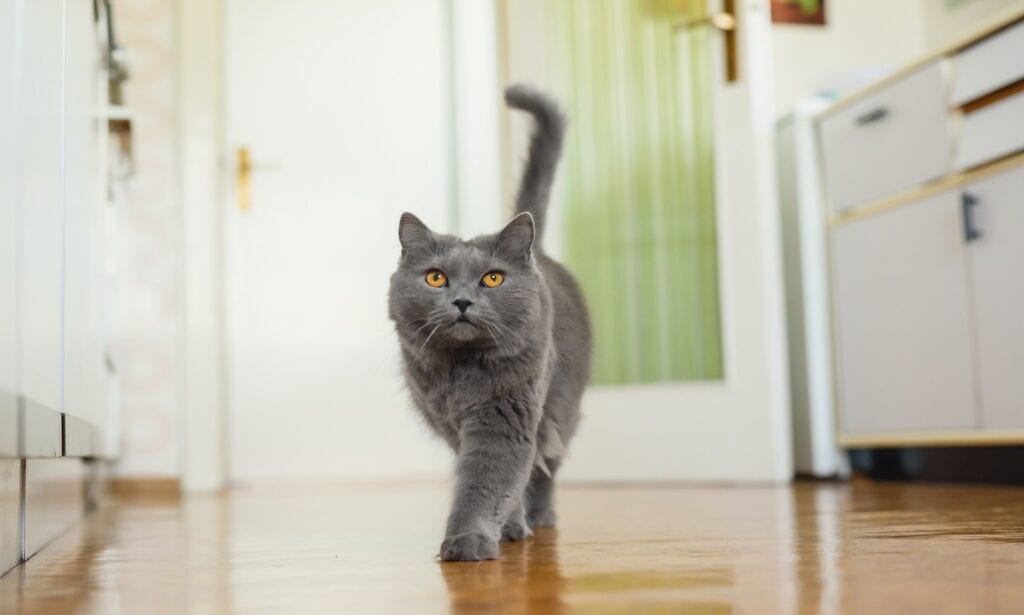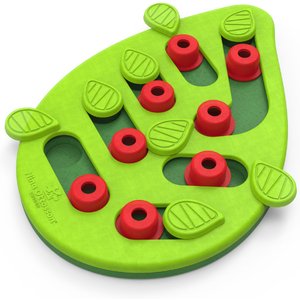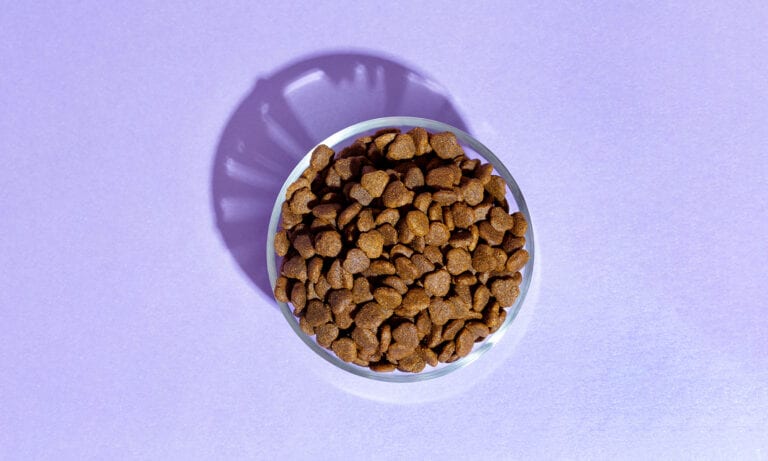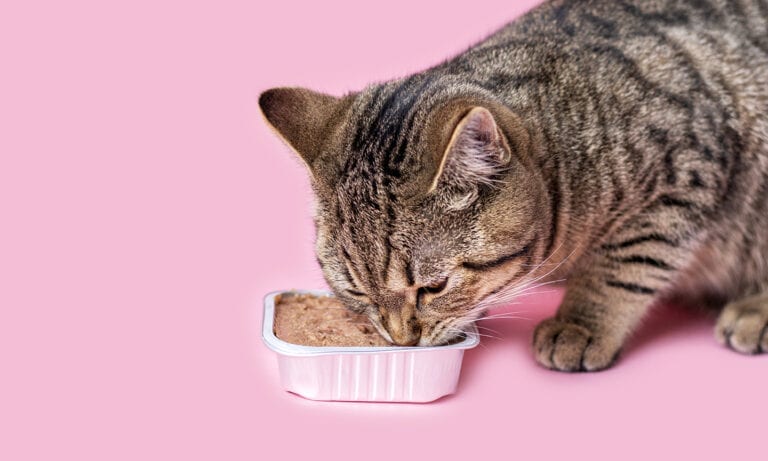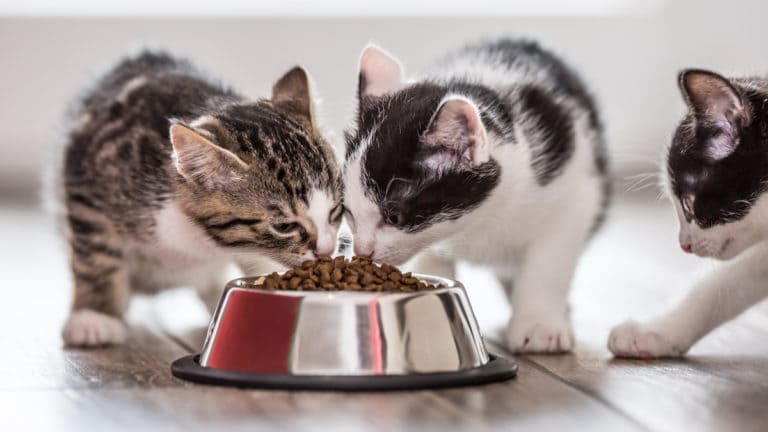Why Is My Cat Not Eating?
There are so many reasons why your cat might turn their nose up at their food, and your vet is the best one to diagnose the underlying cause.
1They Don’t Like Their Food
You may have heard cats can be picky eaters, but refusing food to the point of starvation? Tracey Deiss, DVM in Richmond, Texas, says it’s not unheard of.
“Advising pet parents that a cat will eventually eat when hungry can lead to severe consequences,” she says. For one, cats can develop serious complications such as hepatic lipidosis (fatty liver disease) if they go too long without eating.
Exposing kittens to a variety of food flavors and textures early on can help them develop a more adventurous palate and reduce the chances of them becoming picky eaters later in life.
2Infection
A handful of infections could cause a cat not to eat.
Young cats, particularly recently adopted kitties, are most susceptible to upper respiratory infections, says David Israel, DVM, medical director at Veterinary Emergency Group in Denver. A telltale sign of a URI is a stuffy or running nose, which limits their ability to breathe and smell, potentially reducing their appetite.
A more serious infection Dr. Israel sees in younger cats is feline infectious peritonitis (FIP). One form of the virus causes a cat to develop a large, bloated stomach, despite having stopped eating.
Give your cat’s vet a call if you notice any signs of infection or illness.
3Obstructions
It’s not uncommon for cats to eat something they shouldn’t. When a foreign object, such as string, ribbon, or even a hairball, gets stuck in the gastrointestinal tract, cats may stop eating. Other signs of intestinal blockages include vomiting, straining to defecate, and lethargy.
Another obstruction that is especially common in young male cats is a urinary tract blockage. “Urinary blockages will cause cats to not be able to urinate and secondarily not eat because they’re in pain,” Dr. Israel says.
4Digestive Issues
When a cat arrives at her clinic with loss of appetite, one of the first things Jessica Bell, DVM, veterinarian at Washington State University’s Veterinary Teaching Hospital in Pullman, Washington, does is feel the cat’s abdomen during a physical examination.
“Anything that causes abdominal pain can make the cat stop eating,” Dr. Bell says. “So if they don’t feel good because they’re constipated, they’re probably not eating.” Dehydration, diet changes, and certain medications can all contribute to constipation in cats.
Another digestive issue that could cause a cat to stop eating is inflammatory bowel disease (IBD), Dr. Israel says. It causes chronic inflammation and discomfort of the small or large intestine accompanied by symptoms such as gas, chronic diarrhea, and fatigue.
“If you put food in front of your cat and they just turn away or start to drool, that’s a sign that they’re likely nauseated,” Dr. Israel says.
5Chronic Diseases
Several chronic diseases can cause a loss of appetite in cats, including:
- Diabetes
- Pancreatitis
- Kidney disease
- Cancer
Be on the lookout for any changes in your cat’s behavior, such as if they’re drinking more than normal or if they’ve stopped grooming themselves. These could be a red flag that something’s wrong.
“It’s always better to be safe than sorry,” Dr. Deiss says. “I’d rather have a false alarm than miss out on early detection and intervention.”
6Pain
Pain from any source can affect a cat’s appetite, including orthopedic pain or an injury. However, dental pain isn’t typically Dr. Israel’s or Dr. Bell’s first guess when it comes to why a cat has stopped eating.
“Unless there’s a broken or an infected tooth causing swelling, dental disease rarely causes cats to completely stop eating,” Dr. Israel says.
7Environmental Stress
Our cat companions are descendants of wild hunters and still maintain strong instincts to hunt, climb, and protect their territory. Dr. Deiss explains that stress from an inability to fulfill these instincts can lead to undesirable behaviors and even sickness, and can definitely impact a cat’s appetite.
Other stressors that could cause a change of appetite in cats include:
- Changes in routine
- Moving to a new home
- A new family member
- The death or absence of a family member
- Loud noises or unfamiliar sounds
8Respiratory Problems
“Cats really hate breathing through their mouth,” Dr. Israel says. So if your cat has any type of breathing issue—even a stuffed-up nose—it’s going to make it really difficult for them to chew and breathe at the same time.
Take cats with asthma as an example, he says. “If they’re having a hard time breathing, they will stop eating.”
9Neurological Issues
According to Dr. Israel, a neurological event such as a blood clot, ruptured blood vessel, brain tumor, or toxin exposure affecting the nervous system can all impact appetite.
Signs that your cat may have ingested something toxic include vomiting, diarrhea, decreased activity, and/or lethargy, while inhaled toxins can cause breathing problems.
What To Do if Your Cat’s Not Eating
Specific warning signs that your cat needs to go to the vet include:
- If your cat skips more than one meal or hasn’t eaten for more than 24 hours.
- If your cat isn’t eating and has other symptoms such as lethargy, weakness, vomiting, diarrhea, significant weight loss, or changes in behavior.
- If your cat isn’t eating and has an underlying medical condition such as diabetes, kidney disease, liver disease, or any chronic illness. A lack of appetite could indicate the condition is worsening.
- If your cat isn’t eating and is showing signs of dehydration (dry gums, sunken eyes, decreased skin elasticity, or lethargy).
- If your cat isn’t eating while recovering from a recent surgery or illness. A decline in appetite can be a sign of
- If your cat is a kitten (under 1 year old), older (over 10 years), or has a compromised immune system and shows a loss of appetite. These cats may be more vulnerable to the effects of not eating, so any decrease in appetite should be taken seriously.
How To Get a Cat To Eat
If your cat has lost their appetite, our experts offer some strategies to entice them back to their food bowl:
- Try offering wet food, as it has a stronger aroma than dry kibble.
- Warm up their food slightly to enhance its smell.
- Add low-sodium chicken broth to your cat’s food.
- Offer baby food (chicken or meat flavors) or a small amount of tuna (canned in water, not oil).
- Feed your cat from something other than their regular food bowl to promote eating, such as a food puzzle, a plate, or even hand-feeding.
Dr. Deiss emphasizes the importance of hydration, especially when a cat isn’t eating. To keep your cat hydrated:
- Always provide fresh, clean water in multiple locations around the house.
- Cats may prefer moving water, so consider using a cat water fountain.
- Offer wet cat food or mix canned food with water, tuna juice, or low-sodium chicken broth to increase moisture content.
- Consult your veterinarian, who can assess your cat’s hydration.
Expert input provided by Tracey Deiss, DVM, in Richmond, Texas; David Israel, DVM, medical director at Veterinary Emergency Group in Denver; and Jessica Bell, DVM, veterinarian at Washington State University’s Veterinary Teaching Hospital in Pullman, Washington.
This content was reviewed by Chewy vets.
Learn more about feeding your cat
Share:
